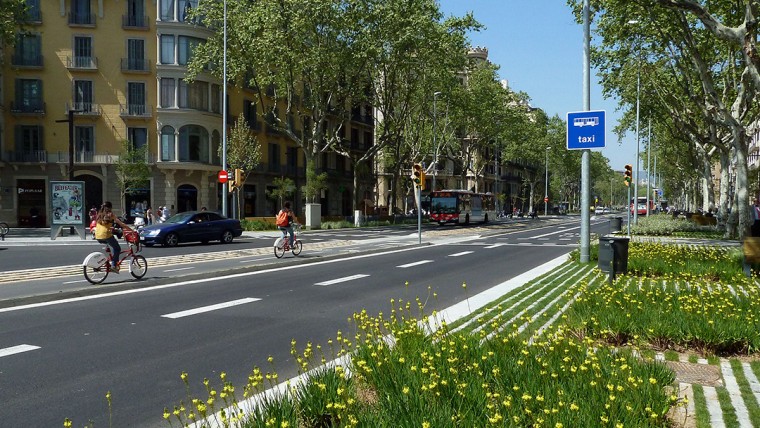
Passeig de Sant Joan is named after the avenue which bordered the esplanade of Ciutadella, before what today is known as the Eixample, was built at the end of the 19th century. It is an example of a peaceful, residential Barcelona, full of charm and Modernista buildings, sculptures, fountains, traditional stores and pleasant gardens.
A historical route
Passeig de Sant Joan is located in Dreta de l’Eixample, the right side, starting at Travessera de Gràcia and going down to the impressive Arc de Triomf and Parc de la Ciutadella. Although it is not as well-known as Passeig de Gràcia, Passeig Sant Joan has its own charm, and some of the least-known Modernista buildings , such as Casa Macaya, by the architect Puig i Cadafalch, which was even put forward as a home for CaixaForum.
The history of this avenue dates back to the end of the 19th century, when the Eixample started to be built. In fact, it is named after the former avenue that bordered the esplanade of Ciutadella, which disappeared after the old military citadel was demolished.
The pleasure of walking
To walk & up to Gràcia or down this peaceful avenue, observing the classic buildings of the Eixample and some of the treasures of Modernisme, is a pleasure. To stop in the gardens and observe the sculptures, such as the one of the priest Jacint Verdaguer, and to enjoy the traditional stores and fountains, such as the Font d’Hèrcules, the oldest monumental fountain in the city, is a real experience for learning about a part of old Barcelona at the beginning of the 20th century. The Arc de Triomf appears as the final reward, letting you through to Parc de la Ciutadella and so end a wonderful walk.






Urban spaces
-
Eixample
la Dreta de l'Eixample -
Gràcia
el Camp d'en Grassot i Gràcia Nova
- Address:
- Pg Sant Joan, 118
- Districte:
- Eixample
- Neighborhood:
- la Dreta de l'Eixample
- City:
- Barcelona
If you would like to make a correction related to this activity...
LET US KNOW
